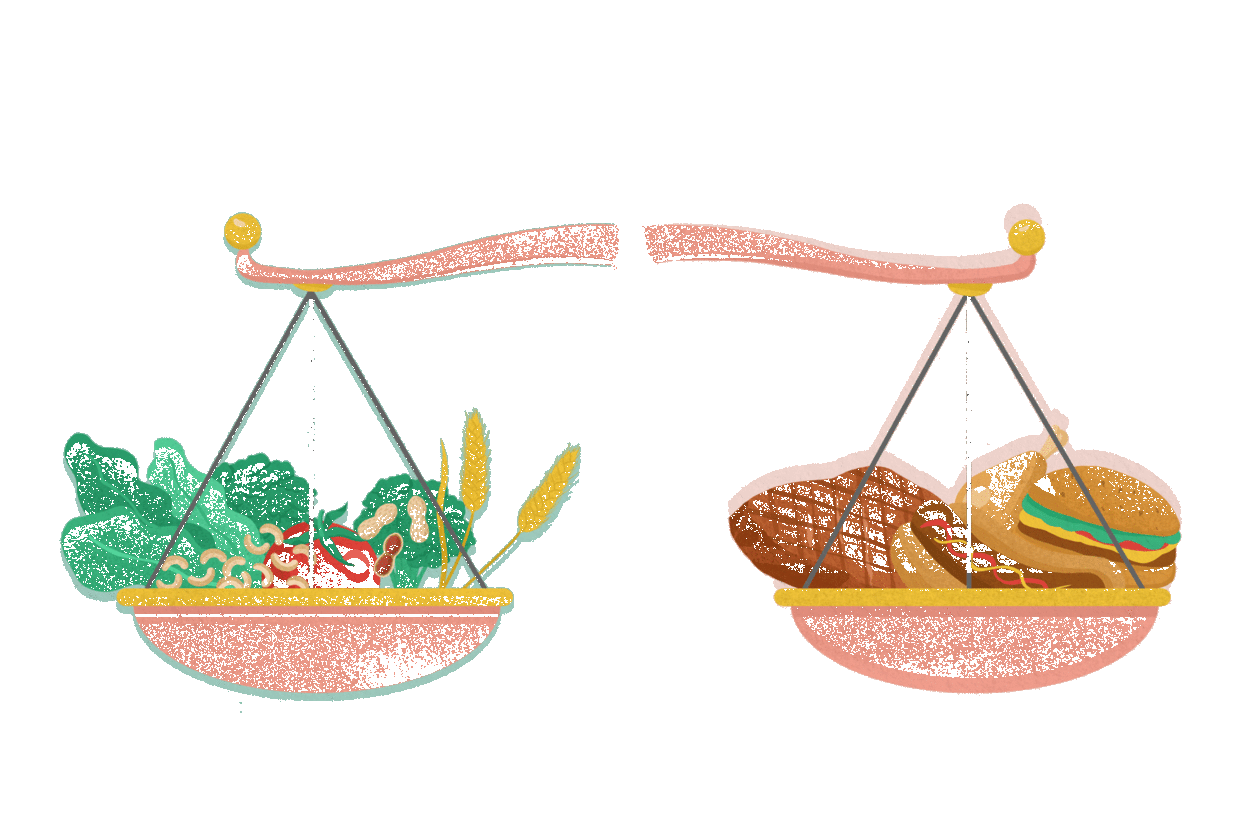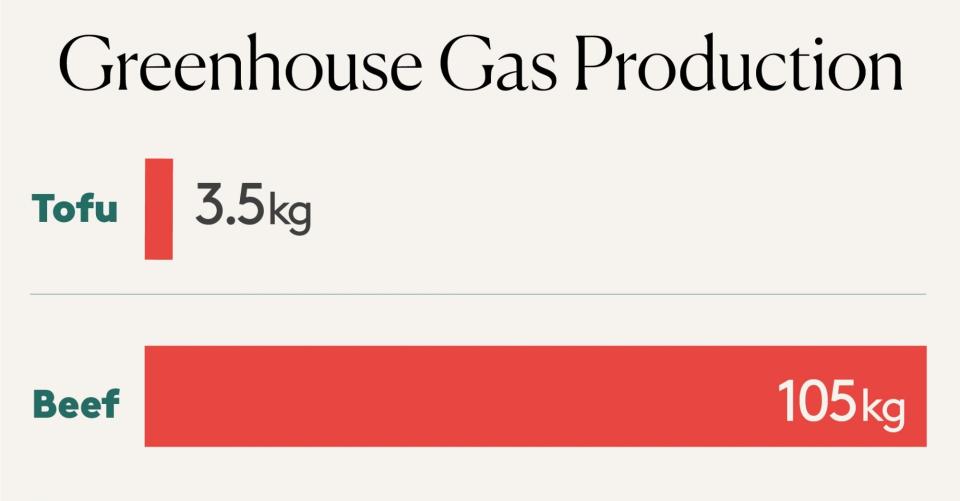Eating Like a Climatarian Means Eating Less Beef

Yeji Kim
The most effective and impactful way to battle and mitigate climate change is to eat less meat, particularly beef. Beef's outsize climate footprint is widely acknowledged. Scientists across the world agree that beef is a core driver of climate change. According to the Food and Agriculture Organization of the United Nations, livestock causes 15 percent of global emissions, and cattle produce some 65 percent of these. The EPA says that cattle's methane emissions alone account for more than a quarter of American agricultural emissions.
Cattle produce staggering amounts of methane, one of the most dangerous greenhouse gases. They do this mostly through burping, a necessary product of the ruminal fermentation they use to digest grass. Through their manure, cattle produce nitrous oxide, another potent greenhouse gas. Cattle ranches also need large tracts of land, prompting deforestation. As trees are razed for herds, carbon dioxide escapes into the atmosphere. Finally, many cattle operations feed animals more than grass. Growing the corn, soybeans, and other foods for supplemental feed has its own significant carbon footprint. For a nation known for hamburgers, these facts are jaw-dropping.
All that being said, individual Americans are well positioned to act. Simple dietary modifications can make a very real difference. "For the United States, where the meat consumption is three times the global average, dietary change has the potential for a far greater effect on food's different emissions, reducing them by 61 to 73 percent," a study from the University of Oxford says.
You can care about climate change and still eat beef. Eating like a climatarian means being more mindful about it: You could skip beef once a day, once a week, or maybe even forever.

Julia Bohan
In its place, you can sub in plant-based proteins. Through their roots, beans and peas fix nitrogen into the soil, a natural process that translates to these plants thriving without added fertilizers (which cause emissions). Nuts are equally beneficial. Actually, nuts are often "carbon-negative." This means that they can actually more pull carbon out of the air than they produce, resulting in a net decrease in greenhouse gases in the atmosphere.
For the true carnivores, though, consider replacing beef with other meats, which contribute less to climate change than beef. A study by the University of Bath, Université Bourgogne Franche-Comté, and Ipsos found that eaters who swapped out beef for pork saved, without any reduction in nutrition, 30 percent of the greenhouse gas emissions beef would have had. Poultry has an even smaller climate footprint than pork.
But if eschewing beef is an absolute non-starter for you, consider rethinking your beef's source. As the journal Science notes, "Consumers can play another important role by avoiding high-impact producers." Buy from small ranchers using holistic methods, like Ohio's Covey Rise Farm, which is worked by Charlie and Kerissa Payne. Covey Rise specializes in pastured chicken and also raises pork, lamb, and beef. The farmers house chickens in "giant greenhouses on skids" that they move across grassy pasture. "By doing that, we're able to utilize their manure instead of letting it concentrate into a highly noxious form," Charlie says. Spread across pasture strategically, chicken manure enriches grass. "Following that, it's being grazed by either cattle or sheep," Charlie says. "It's a symbiotic relationship."
Ultimately, changing your meat consumption doesn't have to be a hardship. Instead, think of beef as a special treat—like lobster or a glass of champagne. You'll appreciate the rare indulgence more and feel at peace with the long-term climate ripples of your decision. As appreciative as your body will be, the planet will be more so.

